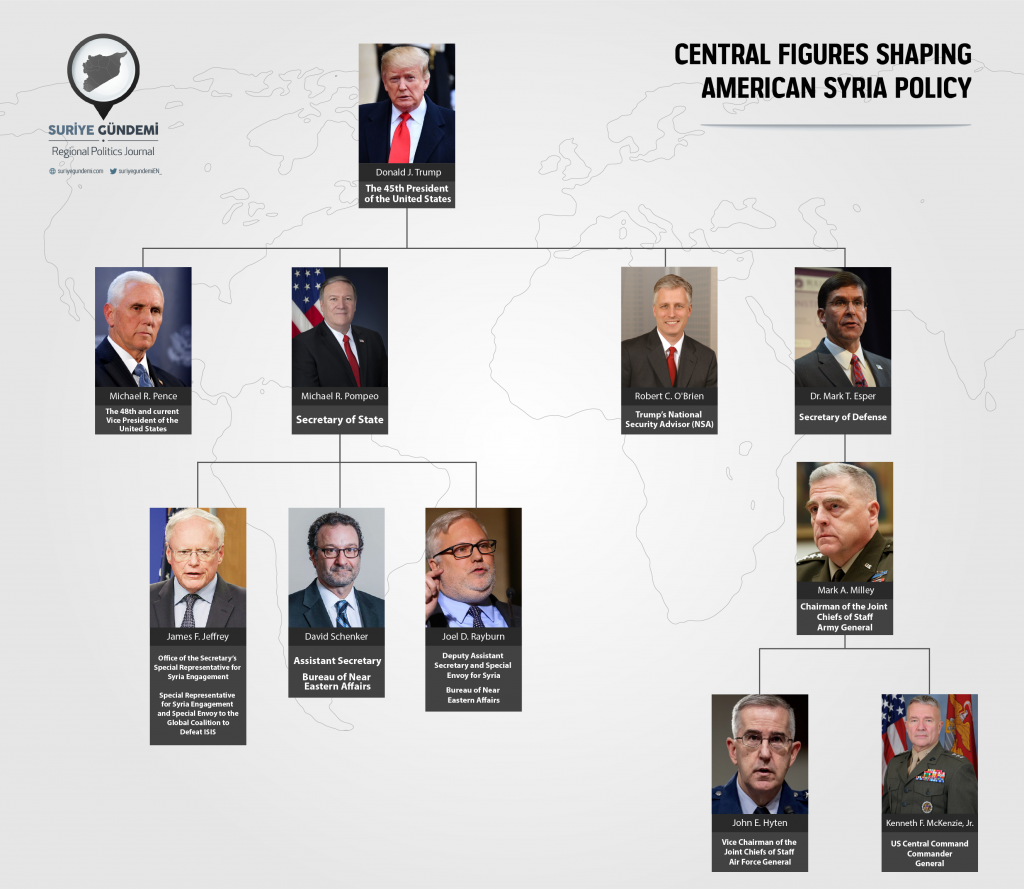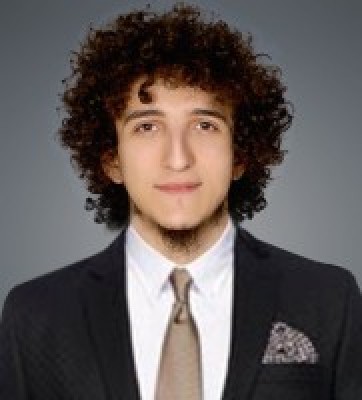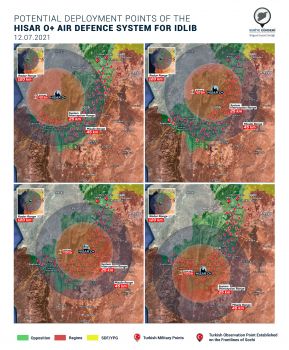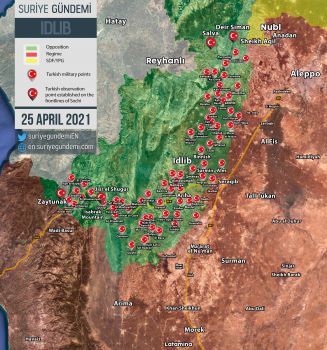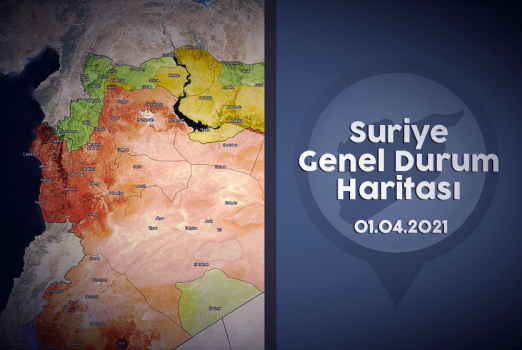Central Figures shaping American Syria Policy
Donald J. Trump
The 45th President of the United States
Trump was born in Queens, NYC in 1946. He obtained his bachelor’s degree in economics from the Wharton School of the University of Pennsylvania. He is in charge of his family’s real-estate business in 1971. Entering, the 2016 presidential race as a Republican, he defeated 16 other candidates. He is known to be a populist, a protectionist, and a nationalist. He entered history as the oldest first term US President and yet the only one without any prior military or government service.[1]
Michael R. Pence
The 48th and current Vice President of the United States
Pence was born in Indiana in 1959. Vice President Pence received his bachelor’s degree in history from Hanover College in 1981. Afterwards he continued with his education at Indiana University School of Law. After the graduation he practiced law and led the Indiana Policy Review Foundation. In 2000, at the age of 40, he entered the United States House of Representatives. He was elected by the people of East-Central Indiana 6 times to represent them in the US Congress. While in Congress, he served as Chairman of the House Republican Study Committee and House Republican Conference Chairman. In 2013, Pence left the Capitol Hill to become the 50th governor of Indiana. In July 2016, now President Trump selected Pence as his running mate. As a result, President Trump and Vice President Pence entered office on January 20, 2017.[2]
Robert C. O’Brien
Trump’s National Security Advisor (NSA)
Robert Charles O’Brien Jr. is a lawyer and President Trump’s National Security Advisor. O’Brien was born in California in 1966. In 1988, he earned his B.A. in political science from the University of California, Los Angeles. In 1991, O’Brien acquired a J.D. degree (Juris Doctor) from the University of California Berkeley School of Law. The same year he was admitted to the California bar.[3] In between 1996-1998, Robert O’Brien was a legal officer with the United Nations Compensation Commission in Geneva, Switzerland. The Commission reviewed and processed claims that resulted from 1990-91 Iraq’s Kuwait invasion. Moreover, O’Brien served as a Major in the Judge Advocate General’s Corps of the US Army Reserve. Additionally, in his private law practice he served in a number of appointive positions under Bush, Obama, and Trump administrations. From May 2018 to October 2019, he was the Special presidential Envoy for Hostage Affairs. Within a year after this appointment, he was given a rank of ambassador. Finally, in September 2019, President Trump appointed O’Brien as the 28th United States National Security Advisor.[4]
*In the beginning of his tenure, O’Brien was to accompany Vice President Pence to meet Turkish President Erdoğan in talks over a ceasefire in Syria after the American abrupt withdrawal.[5]
US Department of State:
Michael R. Pompeo
Secretary of State,
Michael Pompeo who serves as Secretary of State since April 2018, was born in California in 1963. Prior to becoming Secretary of State, from January 2017 to April 2018, he served as a Director of the Central Intelligence Agency (CIA). Before Pompeo joined Trump administration, he was fulfilling his fourth term as a congressman from Kansas. While in Congress, Pompeo served in the House Intelligence Committee, Energy, Commerce, as well as House Select Benghazi Committee. Prior to his work in the US Congress, Mr. Pompeo worked as CEO at the self-founded Thayer Aerospace. After his decade-long work at the Thayer Aerospace, Pompeo served as a President of an oilfield equipment manufacturing, distribution, and service company Sentry International. As of an educational background of the Secretary of State Pompeo, he graduated from the United States Military Academy at West Point in 1986. He also served as a cavalry officer, who patrolled the Iron Curtain prior to the fall of the Berlin Wall. Moreover, Pompeo was an officer in the US Army’s Fourth Infantry Division. After leaving active duty of a cavalry officer, he graduated from Harvard Law School, where he was an editor of the Harvard Law Review.[6]
James F. Jeffrey
Office of the Secretary’s Special Representative for Syria Engagement,
Special Representative for Syria Engagement and Special Envoy to the Global Coalition to Defeat ISIS
Ambassador James Jeffrey is a senior American diplomat with an experience in political issues in the Middle East, Turkey, Germany, and the Balkans, who currently serves as the Secretary of State’s Special Representative for Syria Engagement and the Special Envoy to the Global Coalition to defeat ISIS.
James Franklin Jeffrey was born in Massachusetts in 1946. He received his B.A. in History from Northeast University and an MBA from Boston University Graduate School of Management. He has a command of German, Turkish and French. From 1969 to 1976, Jeffrey was an Army infantry officer, with experience in Vietnam and Germany.
Among the various senior ranks, he held in Washington, DC are: Deputy National Advisor (2007-2008), US Ambassador to Iraq (2010-2012), US Ambassador to Turkey (2008-2010), US Ambassador to Albania (2002-2004).[7]
David Schenker
Assistant Secretary, Bureau of Near Eastern Affairs
David Schenker is an Assistant Secretary of Near Eastern Affairs at the Department of State since June 2019. He received his higher education at the University of Vermont, University of Michigan, and the American University in Cairo, Prior to his service at the Department of State, from 2002 to 2019, he was a director of the Program on Arab Politics at the Washington Institute for Near Eastern Policy (pro-Israeli think tank). In years between 2002-2006 he held a position of the Levant country director in the Office of the Secretary of Defense, under which he was responsible for advising the Secretary and other senior Pentagon leaders on the military and political affairs of Syria, Lebanon, Jordan, Israel and Palestine. Prior to joining a public service in 2002, Schenker was a research fellow at the Washington Institute and coordinated centrally funded USAID projects in Egypt and Jordan.[8]
Joel D. Rayburn
Deputy Assistant Secretary and Special Envoy for Syria, Bureau of Near Eastern Affairs
Joel D. Rayburn is an American diplomat who serves as a Deputy Assistant Secretary for Levant Affairs and Special Envoy for Syria since July 2018.
Joel D. Rayburn was born in Oklahoma in 1969. In 1992, after graduating from the US Military Academy at the West Point, Rayburn entered the US Army. Rayburn is a retired US Army officer who served in different missions in the Middle East, Europe and the US from 1992 to 2018. He also holds a master’s degree in History from Texas A&M University and a degree in National Security Studies from the National War College. After his retirement from the Army, from 2017 to 2018, he was a Senior Director for Iran, Iraq, Syria. And Lebanon in the National Security Council at the White House.[9]
Rayburn is an author of several books and articles on America’s Iraq invasion in 2003. For instance, in 2014, his book “Iraq After America: Strongmen, Sectarians, Resistance” was published by the Hoover Institution. Additionally, from 2013 to 2017 he coordinated the US Army’s Project that aimed to produce history of the 2003 Iraq War. Under this project, Mr. Rayburn became an editor and co-author of the two-volumes of “The US Army in the Iraq War” that was published in 2019.[10]
US Department of Defense:
Dr. Mark T. Esper
Secretary of Defense
Mark Esper was born in 1964 in Pennsylvania. In 1986, he graduated from the United States Military Academy and received his commission in the Infantry. Once he completed Ranger and Pathfinder training, he participated in the 1990-91 Gulf War. He retired from the US Army in 2007 after a decade spend on active duty and 11 years spend on the National Guard and the Army Reserve. Once Esper left an active duty in the Army, he served as a Chief of Staff at the Heritage Foundation think tank. Afterwards, he was a senior Professional staff member on the Senate Foreign Relations and Senate Government Affairs committees. Under George W. Bush administration, he was the Deputy Assistant Secretary of Defense in Pentagon. In 2006-2007, Dr. Esper held an Office of the Chief Operating Officer and Executive Vice President of Defense and International Affairs at Aerospace Industries Association. Among some other positions held by Mark Esper are the Executive Vice President for the U.S. Chamber of Commerce’s Global Intellectuals Property Center, Vice President for Europe and Eurasian Affairs (2008-2010), and the Vice President for Government Relations at the Raytheon Company. Prior to being sworn in as the 27th Secretary of Defense in July 2019, Mark T. Esper served as the Secretary of the Army from November 2017 to June 2019.
Defense Secretary Esper holds a Master of Public Administration degree from Harvard University’s John F. Kennedy School of Government, and a doctorate in Public Policy from George Washington University.[11]
Mark A. Milley
Chairman of the Joint Chiefs of Staff, Army General
General Mark A. Milley is the 20th Chairman of the Joints Chief of Staffs, which makes him American highest-ranking military officer, principal advisor to the President, the secretary of defense, and the National Security Council (NSC). Prior to being sworn in as Chairman on October 1, 2019, General Milley was the 39th Chief of Staff of the U.S. Army.
Originally coming from Massachusetts, General Milley received his bachelor’s degree in political science from Princeton University in 1980. At Princeton he received commission from Army ROTC. Furthermore, General Milley obtained a master’s degree from in international relations from Columbia University and a degree in national security and strategic studies from the U.S. Naval War College.
General Milley spent the last 39 years on multiple command and staff positions in eight divisions and Special Forces. Additionally General Milley’s operational deployments include the Multi-National Force and Observers, Sinai, Egypt; Operation Joint Endeavor, Bosnia-Herzegovina; Operation Just Cause, Panama; Operation Iraqi Freedom, Iraq; Operation Uphold Democracy, Haiti; and Operation Enduring Freedom, Afghanistan.[12]
John E. Hyten
Vice Chairman of the Joint Chiefs of Staff Air Force General
General John E. Hyten serves as the 11th Vice Chairman of the Joint Chiefs of Staff making him the nation’s second highest-ranking military officer and advisor. General Hyten obtained his bachelor’s degree in engineering and applied sciences from Harvard University in 1981. He attended Harvard on Air Force Reserve Officer’s Training Corps scholarship. After graduation he was commissioned a second lieutenant. Prior to being involved in space operations, General Hyten’s career revolved around engineering and acquisition.
He has commanded at the major command levels. In 2006, he deployed to Southwest Asia as Director of Space Forces for operations Enduring Freedom and Iraqi Freedom. In addition, he commanded Air Force Space Command and was the Commander of U.S. Strategic Command.[13]
Kenneth F. McKenzie, Jr.
US Central Command, Commander, General
General McKenzie is originally from Alabama. He graduated from the Citadel in 1979. Afterwards he was commissioned into the Marine Corps and trained as an infantry officer. General McKenzie is an honor graduate of the Armor officer Advanced Course, Marine Corps Command and Staff College, and the School of Advanced Warfighting. Prior to assuming command of the United States Central Command in March 2019, he served as a Director of the Joint Staff as well as a commander of U.S. Marine Corps Forces of the Central Command.[14]
[1] “Donald J. Trump”, the White House, retrieved on January 29, 2020, from https://www.whitehouse.gov/people/donald-j-trump/
[2] “Michael R. Pence. Vice President of the United States”, White House, retrieved on January 29, 2020, from https://www.whitehouse.gov/people/mike-pence/
[3] “Attorney License Profile”, The State Bar of California, retrieved on January 29, 2020, from http://members.calbar.ca.gov/fal/Licensee/Detail/154372
[4] “Robert C. O’Brien”, U.S. Department of State, retrieved on January 29, 2020, from https://www.state.gov/biographies/robert-c-obrien/
[5] “Who is Robert O’Brien, Trump’s national security adviser pick?”, Al Jazeera, retrieved on January 29, 2020, from https://www.aljazeera.com/news/2019/09/robert-trump-national-security-adviser-pick-190918143724435.html
[6] “Michael R. Pompeo”, U.S. Department of State, retrieved on January 29, 2020, from https://www.state.gov/biographies/michael-r-pompeo/
[7] “James F. Jeffrey”, U.S. Department of State, retrieved on January 29, 2020, from https://www.state.gov/biographies/james-f-jeffrey/
[8] “David Schenker”, U.S. Department of State, retrieved on January 29, 2020, from https://www.state.gov/biographies/david-schenker/
[9] “Joel D. Rayburn”, U.S. Department of State, retrieved on January 29, 2020, from https://www.state.gov/biographies/joel-d-rayburn/
[10] “Colonel Joel Rayburn”, Hoover Institution, retrieved on January 29, 2020, from https://www.hoover.org/profiles/colonel-joel-rayburn
[11] “Dr. Mark T. Esper”, U.S. Department of Defense, retrieved on January 29, 2020, from https://www.defense.gov/Our-Story/Biographies/Biography/Article/1378166/dr-mark-t-esper/
[12] “Genereal Mark A. Milley”, U.S. Department of Defense, retrieved on January 29, 2020, from https://www.defense.gov/Our-Story/Biographies/Biography/Article/614392/general-mark-a-milley/
[13] “ General John E. Hyten”, U.S. Department of Defense, retrieved on January 29, 2020, from https://www.defense.gov/Our-Story/Biographies/Biography/Article/999157/general-john-e-hyten/
[14] “Commander, General Kenneth F. McKenzie, Jr.”, U.S. Central Command, retrieved on January 29, 2020, from https://www.centcom.mil/ABOUT-US/LEADERSHIP/Bio-Article-View/Article/1798987/commander-general-kenneth-f-mckenzie-jr/

